Presenters and Panelists
Featured Presenters
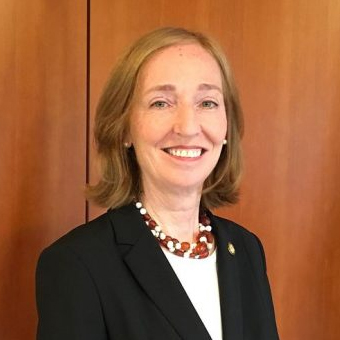
Emily Haber was appointed the German Ambassador to the United States in June 2018. Prior to her appointment, she served in the German Federal Ministry of the Interior as state secretary overseeing security and migration at the height of the refugee crisis in Europe. In this role, she worked closely with the U.S. administration on topics ranging from the fight against international terrorism to global cyberattacks and cybersecurity. She was the first woman appointed to the Foreign Office positions of political director (2009) and state secretary (2011), and has served in multiple positions and countries. She has extensive knowledge of the Soviet Union and Russia, having worked both in the Soviet Union Division at the German Foreign Office and in the German Embassy in Moscow. Haber holds a doctorate from Cologne University, where her dissertation focused on German foreign policy during the Morocco crisis on the eve of World War I.
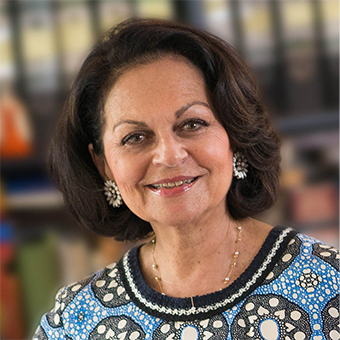
Sonja Lahnstein-Kandel is a respected advocate of civic rights and tolerance in Germany and Israel. Born in the former Yugoslavia, Lahnstein-Kandel immigrated to Germany in the 1960s, where she completed a degree in political economics at the University of Hamburg and embarked on an international career that included positions at the International Monetary Fund and the World Bank. Triggered by xenophobic and antisemitic incidents after German unification, Lahnstein-Kandel launched the German non-profit, “Step21 for Tolerance and Understanding,” which has served nearly one million youth in Germany and neighboring countries since the late 1990s. She also serves on multiple executive boards for organizations, including the Berlin Foundation Memorial for the Murdered Jews in Europe, Israelite Hospital, German Friends of the Israel Museum and German Friends of the University of Haifa. For her extensive service, she was awarded the Federal Cross of Merit of Germany (2001), and a doctorate honoris causa from the University of Haifa (2017).
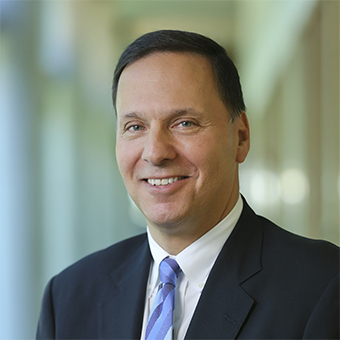
Ronald D. Liebowitz became the ninth president of Brandeis University on July 1, 2016. The former president of Middlebury College, Liebowitz is a recognized administrative leader in higher education whose academic scholarship centers on political geography, Russia and higher education. Under President Liebowitz’s leadership, Brandeis has reaffirmed its special role in higher education, and has ushered in a new era of transparency and accountability as it refocuses on the quality of the undergraduate experience and the intellectual strength of its faculty. He served as president of Middlebury from 2004-15. In all, he spent 32 years, as a professor of geography and Russian studies, at the liberal arts college in Vermont, including seven as provost. In 2009, Time magazine named Liebowitz one of the 10 best U.S. college presidents for championing Middlebury’s ambitious goal to become carbon-neutral by 2016, less than a decade after it announced the initiative. Liebowitz earned a Bachelor of Arts in Economics and Geography from Bucknell University, and a doctorate in geography from Columbia University. His scholarship has focused on fiscal federalism, intraregional economic relations and the nationality question in the former Soviet Union. He is now working on a multi-year research project with his wife, Jessica, on the future of U.S. doctoral education.
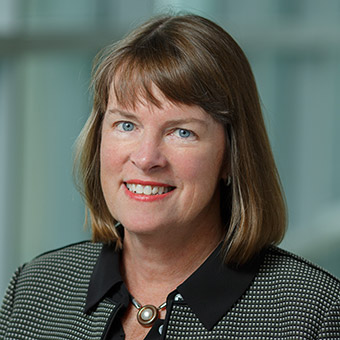
Lisa M. Lynch is provost, executive vice president for academic affairs and Maurice B. Hexter Professor of Social and Economic Policy at Brandeis University. Previously, she served as interim president of Brandeis University and as dean of the Heller School for Social Policy and Management. Lynch has served as chief economist at the U.S. Department of Labor, director and chair of the board of directors of the Boston Federal Reserve Bank, and president of the Labor and Employment Relations Association. She has published extensively on the impact of technology and organizational innovation on productivity and workers, the determinants of youth unemployment and the school-to-work transition. Lynch earned her Bachelor of Arts in Economics and Political Science at Wellesley College, and her master's and doctorate in economics at the London School of Economics.
Panelists
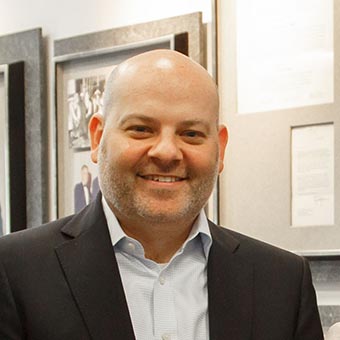
Henry J. Charrabé MA ’99, IBS MA’01 is the Managing Director and CEO of Fluence Corp (New York), a global leader in mid-sized, decentralized water and wastewater solutions. He brings more than a decade of experience developing water management and investment solutions to this position, having previously served as president and CEO of RWL Water, senior executive at RSL Investments Corp., and Chief Operating Officer of W2W, an electrocoagulation wastewater technology company. Charrabé holds a BA from the Freie Universität Berlin, an MA in political science from Brandeis University and an MA in international economics and finance from Brandeis University’s International Business School and an MA in public administration from Harvard University’s Kennedy School of Government. He was CGES’ first student assistant, serving from 1998 to 2001.
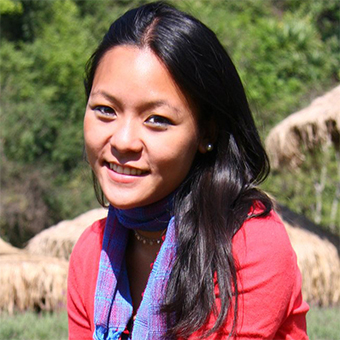
Arina Lô Chithavong-Lester, Heller MA’15 is director of development at Community Preservation and Development (Washington, DC), a U.S. nonprofit tackling urban poverty through affordable housing. In her human rights career, Chithavong-Lester undertook diverse projects at Legacies of War, the Fair Labor Association and the UN Agency for International Labor. Prior to this, she worked in Thailand as a fellow for the German development agency GIZ, where she promoted indigenous knowledge in the ASEAN region and alternative livelihood skills against opium production. Born and raised in Germany, Chithavong- Lester earned a BA in history and social anthropology from Heidelberg University and an MA in sustainable international development from Brandeis University’s Heller School. She served as a CGES graduate assistant from 2013 to 2014.
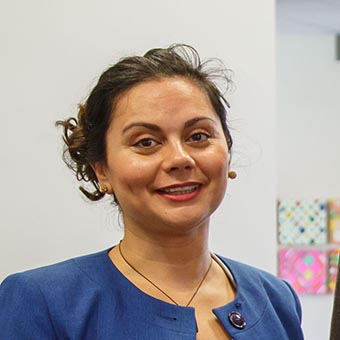
Sultan Doughan, a visiting scholar at CGES, is an anthropologist and doctoral candidate working through the lens of Holocaust education to examine the intersection of citizenship, religious difference and race in Europe. Her dissertation asks why and how Muslim and Jewish minorities become racialized in the secular-liberal context of the German nation-state. Her latest publication, “Säkularismus als Herrschaft und Praxis: Zu Kategorisierung von Juden und Muslimen im Kontext säkularer Wissensproduktion”/“Secularism as Domination and Practice: To Categorize Jews and Muslims in the Context of Secular Knowledge Production” (2018), explores the differential inspection of Jewish and Muslim bodies in the European public. She holds an MA from Freie Universität Berlin.
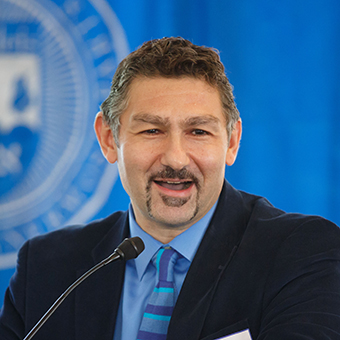
Can Erbil is Professor of the Practice of Economics at Boston College. A specialist in international trade, development economics and macro-economic policy, Erbil also directs the Economic Modeling School at EcoMod (Brussels. He taught economics at Brandeis from 1999-2012 in the International Business School, Graduate School of Arts and Sciences, and Heller School of Social Policy and Management. Among his current advisory roles, he is a senior fellow and international advisory board member at Bahçesehir University (Turkey); research fellow, Economic Research Forum for the Arab Countries, Iran and Turkey and board member, Capital Turkish Connections. He holds a BA from Boğaziçi University, and an MA and PhD from Boston College, all in economics. Erbil was CGES Assistant Director from 2009 to 2012.
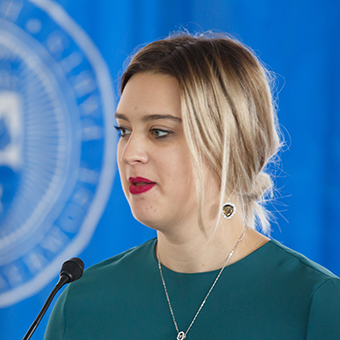
Diana Filar is a doctoral candidate in the English department at Brandeis University whose research focuses on the U.S.-immigrant novel. Her dissertation analyzes the use of names and naming conventions across Slavic-, Latinx-, and African immigrant fictions, using literary onomastics to connect contemporary literary representations of immigrant subjectivities to the longer history of migration, ultimately aiming toward “naming the system” in which the political promise of the American dream has failed. This past summer, supported by CGES and Max Kade Foundation travel grants, she commenced her research in Germany and Poland. She received her master’s degree from the University of New Mexico.
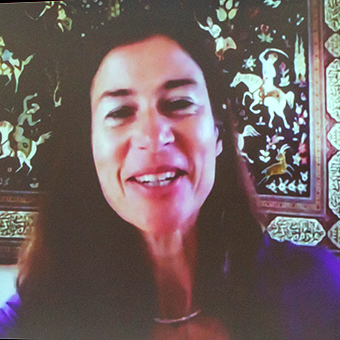
Birgit Glorius is Professor for Human Geography at the European Studies Institute of Technische Universität Chemnitz. Her research focuses on European migration and refugee reception, and is conducted primarily in Eastern Germany, Poland, Bulgaria and the Western Balkans. Her most recent publication, “Perspektiven auf Fluchtmigration in Ost und West — ein Regionaler Blick auf Kommunale Integrationspraxis”/“Perspectives on Flight Migration in East and West: a Regional View on Municipal Integration Practice” with Anne-Christin Schondelmayer (2018) appeared in the Journal of Comparative Politics. She earned a diploma in human geography from the University of Würzburg, and a doctorate from the University of Halle-Wittenberg. She joins us via Zoom.
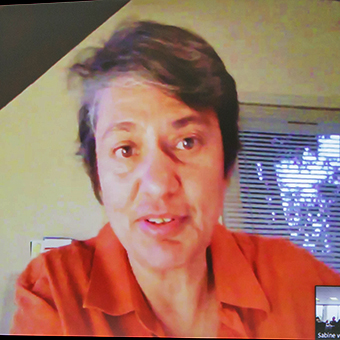
Deniz Göktürk is associate professor and chair of the Department of German at the University of California, Berkeley, where she is affiliated faculty at the University of California CGES. Her publications include “The German Cinema Book,” edited with Tim Bergfelder and Erica Carter (2002, new ed. forthcoming 2019), and “Germany in Transit: Nation and Migration 1955-2005,” edited with David Gramling and Anton Kaes (2007) as well as multiple articles on transnational migration, culture and cinema. “Framing Migration: Seven Takes on Borders and Mobility” is one of her current projects. Göktürk is coordinator of the Multicultural Germany Project and cofounder/concept coordinator of the electronic journal TRANSIT. She holds a doctorate from Freie Universität Berlin, and joins us via Zoom.
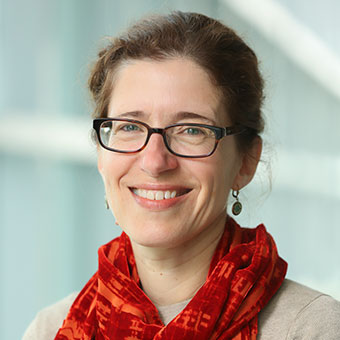
Lucy Goodhart is a lecturer in the Department of Politics and in the International and Global Studies program at Brandeis University. As a political scientist with a love for political economy, Goodhart’s research focuses on the causes and consequences of globalization. Her current projects include a working paper on the real exchange rate and an analysis of the impact of real wages on presidential approval. Her research has appeared in International Studies Quarterly, Quarterly Journal of Political Science and Review of International Political Economy. She holds an master's in public policy and a doctorate in politics, philosophy and government from Harvard University.
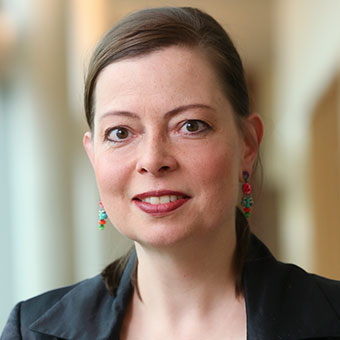
Laura Jockusch is the Albert Abramson Assistant Professor of Holocaust Studies at Brandeis University, where her research and teaching focus on the social, political, cultural and legal histories of European Jews before, during and after the Holocaust. Her first book, “Collect and Record! Jewish Holocaust Documentation in Early Postwar Europe” (2012), examines the beginnings of Holocaust research by Jews and from a Jewish perspective immediately after the liberation from Nazi rule. She also served as co-editor, with Gabriel Finder, of “Jewish Honor Courts: Revenge, Retribution and Reconciliation in Europe and Israel after the Holocaust” (2015). Her ongoing research project investigates how Jews conceptualized legal redress after the unprecedented crime of the Nazi genocide of European Jews. She holds a doctorate from New York University.
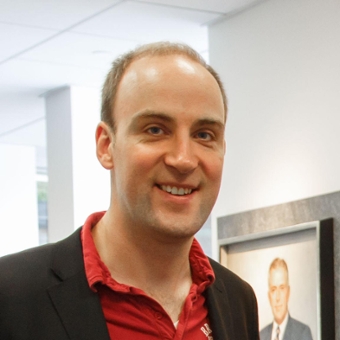
Kai Keller ’07 leads the World Economic Forum’s work at the cross-section of innovation and financial stability and is currently a WEF Global Leadership Fellow (New York). Prior to joining the Forum, he served as a consultant to the Clinton Health Access Initiative; associate director for global equity trading at Daiwa Securities; manager of international equity trading at Macquarie Capital; and analyst at Credit Suisse. He is a member of the New York Athletic Club’s fencing program and an Atlantik-Brücke Young Leader. Keller holds a BA in economics and politics from Brandeis University and an MA with a focus on global health and international negotiations from Tufts University’s Fletcher School of Law and Diplomacy. He was a CGES student assistant from 2003 to 2007.
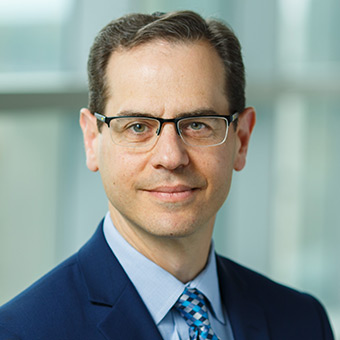
Jon Levisohn holds the Jack, Joseph and Morton Mandel Chair in Jewish Educational Thought in the Department of Near Eastern and Judaic Studies at Brandeis University, and directs the Jack, Joseph and Morton Mandel Center for Studies in Jewish Education. A philosopher of education, he is the author of numerous publications on the teaching and learning of history, the teaching and learning of classical Jewish texts, and the purposes of Jewish education. He is also the co-editor of two forthcoming volumes, “Advancing the Learning Agenda in Jewish Education,” with Jeffrey Kress and “Beyond Jewish Identity,” with Ari Kelman. He holds an AB in philosophy from Harvard College, and an MA in philosophy and religious studies and a PhD in philosophy of education from Stanford University.
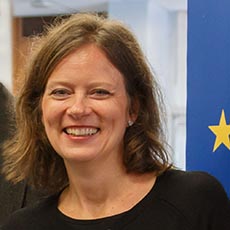
Andrea Löw is Deputy Head of the Center for Holocaust Studies at the Institute for Contemporary History in Munich, Germany. Prior to this, she was a researcher at the Research Unit for Holocaust Literature at the University of Gießen where she also taught and organized excursions to places connected with the history of the Holocaust in Poland. As a historian, her research focuses on the Holocaust in Eastern Europe, and Jewish history during the Holocaust. Löw is the editor, with Frank Bajohr, of “The Holocaust and European Societies: Social Processes and Social Dynamics” (2016) and of “Der Holocaust: Ergebnisse und neue Fragen der Forschung”/“The Holocaust: Results and New Questions of Research” (2015). She earned her doctorate from the University of Bochum.

Jennifer Miller is associate professor of modern European history and director of the European Studies minor at Southern Illinois University Edwardsville. Author of “Turkish Guest Workers in Germany: Hidden Lives and Contested Borders, 1960s-1980s” (2018), Miller has also published articles in German History, International Labor and Working Class History and Nations and Nationalism. Her research interests include the intersections between West German women’s movements and issues of concern to foreigners in Germany. Miller holds an AB in German from Davidson College, and an MA in women’s and gender studies and a doctorate in modern European history, both from Rutgers University.

Cynthia Porter is a doctoral candidate in the German program at Vanderbilt University. Her research interests lie within the area of cross-media studies with a focus on body depiction in German literature and film, cultural connotations of body modification and tattoos, and Afro-German Studies. Her dissertation explores depictions of tattoos in German cultural history in the wake of moments of perceived cultural rupture and transition in the 20th-century to the present. Porter was awarded a Digital Humanities Fellowship and is a member of the inaugural cohort for the Comparative Media Analysis and Practice (CMAP) joint PhD program. She received a BA in German studies from Denison University and two MA degrees from Bowling Green State University, one in German studies and one in popular culture.
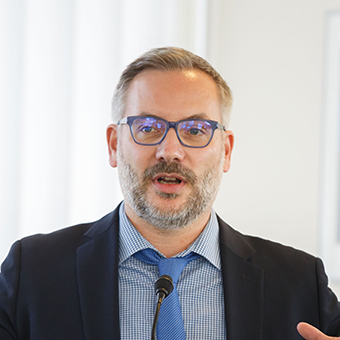
Nils Ringe ’01 is professor of political science, Jean Monnet Chair, and director of the Center for European Studies at the University of Wisconsin- Madison. His research focuses on European Union politics, legislatures, social networks and elections. His most recent book is “Bridging the Information Gap: Legislative Member Organizations as Social Networks in the United States and the European Union,” with Jennifer N. Victor (2013). His articles have appeared in journals including the American Journal of Political Science, British Journal of Political Science, Legislative Studies Quarterly, European Union Politics, and European Journal of Political Research. His next book will focus on multilingualism in EU institutions. He holds a BA in politics and history from Brandeis, and an MA and PhD in political science from the University of Pittsburgh. Ringe worked at CGES from 1999 to 2001.
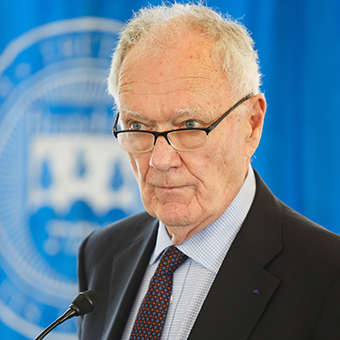
George W. Ross is ad personam Chaire Jean Monnet and visiting professor of political science at the University of Montreal-McGill Center for Excellence on the European Union, Professor Emeritus of Labor and Social Thought at Brandeis and faculty associate at Harvard’s Minda de Gunzburg Center for European Studies. Among his several books are “The European Union and its Crises Seen Through the Eyes of the Brussels Elite” (2011) and “What’s Left of the Left? Center-Lefts in a Globalizing World,” edited with James Cronin and James Shoch (2011). He has served as editor of several professional journals and led academic centers and associations, including Harvard’s European Union Center, the European Union Studies Association (EUSA) and the Council for European Studies. He is an officer of the French Ordre des Palmes Academiques and received a lifetime achievement award from EUSA in 2017. Ross holds a doctorate from Harvard. He directed Brandeis CGES in its first decade, from 1999 to 2008.
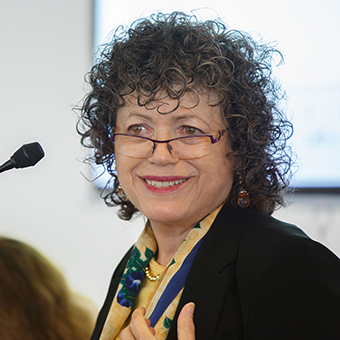
Vivien A. Schmidt is Jean Monnet Professor of European Integration, Professor of International Relations and Professor of Political Science at Boston University where she was also the founding director of BU’s Center for the Study of Europe. Among her recent honors, she was named a Chevalier in the Legion of Honor and received a Guggenheim Foundation Fellowship for a transatlantic investigation of the populist “rhetoric of discontent.” She has held visiting professorships and fellowships at a broad range of European institutions and is widely published. Recent books include “Europe’s Crisis of Legitimacy: Governing by Rules and Ruling by Numbers in the Eurozone” (forthcoming 2019) and “Democracy in Europe” (2006)—named in 2015 by the European Parliament as one of the “100 Books on Europe to Remember.” Schmidt earned a BA at Bryn Mawr College, and an MA and PhD at the University of Chicago, all in political science.
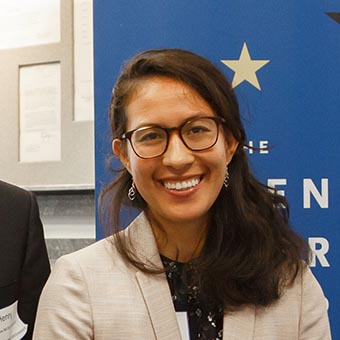
Ingrid Schulte ’13 works as a land use consultant at Climate Focus (Berlin), and coordinates the New York Declaration on Forests (NYDF) Assessment Partners, a coalition of over 20 major international organizations that track progress on addressing global deforestation. Prior to Climate Focus, Schulte spent two years as a community health specialist with the U.S. Peace Corps in Swaziland where she helped develop capacity-building programs on a range of issues from female and youth empowerment to issues at the intersection of climate and health, such as clean water and food security. She also worked with the World Wide Fund for Nature (WWF China) and the Charles River Watershed Association. She researches issues of water and land use. Schulte holds a BS in biology and anthropology from Brandeis University, and an MPP from the Hertie School of Governance (Berlin). She worked at CGES from 2011 to 2013.
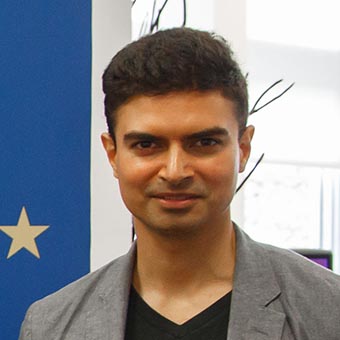
Aneil Tripathy ’12, MA’14 is a double Brandeis alumnus, having completed a BA in anthropology and an MA in international and global studies with concentrations in finance and the environment. He is currently pursuing his third Brandeis University degree as a doctoral candidate in anthropology, focusing on the development of the green bond market. Tripathy is also a visiting researcher at the Pentland Center for Sustainability in Business (Lancaster, UK) and has worked with the Climate Bonds Initiative in London as a researcher and executive associate. In addition, Tripathy is a cofounder of the anthropology podcast, “This Anthro Life.” He has been a visiting doctoral researcher at Cass Business School (London) and an associate member of the Centre for the Anthropology of Sustainability (CAOS) at University College London.
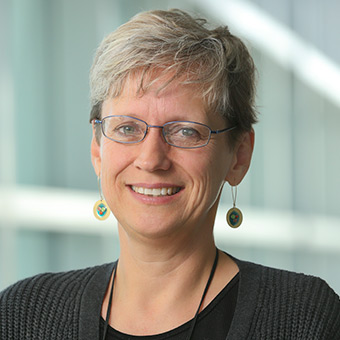
Sabine von Mering is professor of German and Women’s, Gender and Sexuality Studies, and affiliated faculty, Environmental Studies Program at Brandeis University. Von Mering has provided leadership to Brandeis CGES since its earliest days, as assistant director from 1998 to 2008, and as director since 2008. Her publications include “Right-Wing Radicalism Today: Perspectives from Europe and the U.S.,” edited with Timothy McCarty (2013) and “International Green Politics,” edited with Sarah Halpern-Meekin (2002). Currently, she is researching Germany’s efforts to combat climate change and the role of climate change in the humanities. Von Mering holds a “Staatsexamen” from Universität Göttingen and a PhD in German studies with a designated emphasis in feminist theory from the University of California, Davis.
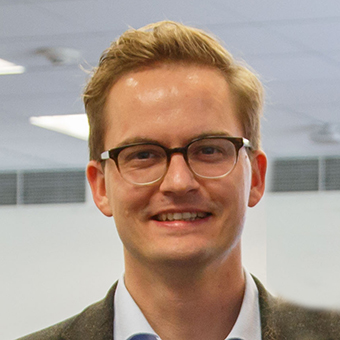
Lukas Welz is chairman of AMCHA Germany, an institution that supports psychosocial aid for Holocaust survivors in Israel and develops programs of knowledge transfer and dialogue on effects of persecution following collective violence, trauma and intergenerational aspects. He currently serves as policy advisor for a foundation supporting Roma NGOs in Germany. He previously worked in the German Bundestag on projects concerned with antisemitism, German-Israeli relations and Holocaust education. He also led the working group, “Conflicts in Europe,” at the Heidelberg Institute for International Conflict Research and researched transitional justice in Cambodia. Welz holds a Bachelor of Arts in Political Science and History from the University of Heidelberg and an MSc in conflict, development and governance from Defence Academy of the United Kingdom, Cranfield University.
Artists
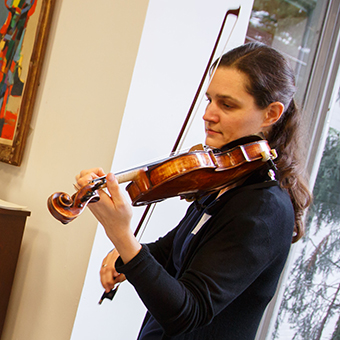
Annegret Klaua, MFA’09, violin, is a performer, educator and activist based in Somerville, Massachusetts. As an orchestral musician, she plays with the Bach, Beethoven and Brahms Society (formerly Boston Classical Orchestra), Boston Modern Orchestra Project, Odyssey Opera, Boston Lyric Opera, the Rhode Island Philharmonic and Portland Symphony Orchestra. Klaua holds a BA and an MM in performance from Indiana University, an artist diploma from the Hochschule für Musik in Dresden, Germany, an MFA in musicology from Brandeis University and an MS in transcultural mental healthcare from Queen Mary University of London. During her years of music study at Brandeis, she worked as a graduate assistant at CGES from 2004 to 2007.
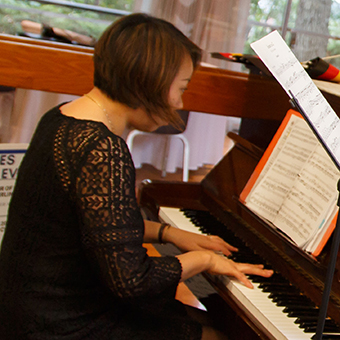
Yun Lee, pianist, received her Doctorate of Musical Arts in Collaborative Piano from Boston University in 2009. She has participated in the Apple Hill Chamber Music Festival in New Hampshire and the Art Song Festival in Salzburg, Austria. Lee performs regularly as a chamber musician and song recitalist, and is a devoted teacher. In addition to her private teaching studio, she is a member of the piano and chamber music faculty of Winchester Community Music School (WCMS) and was recently appointed the artistic director of the Summer Chamber Music Festival at WCMS. Lee also serves as the music director at the First Lutheran Church in Malden and is a member of the National Piano Guild and the New England Piano Teachers’ Association.
Emcee
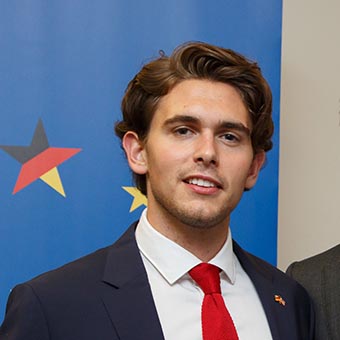
Oliver Koch ’20, an undergraduate majoring in neuroscience and biology, has worked at the CGES since 2016 and is one of its current cohort of student leaders. He hails from Saarlouis, Germany where he earned his Abitur and volunteered as an EMT with the German Red Cross for one year. In his free time, he provides medical care to the campus as a BEMCo EMT, plays ultimate frisbee, sings with the Brandeis co-ed acapella group “Voices of Soul,” and volunteers with the student-led Waltham Group Brandeis Buddies club that increases awareness of disabilities and works to bridge the gap between different groups at Brandeis by building friendships between students and adults with developmental disabilities who work on campus.